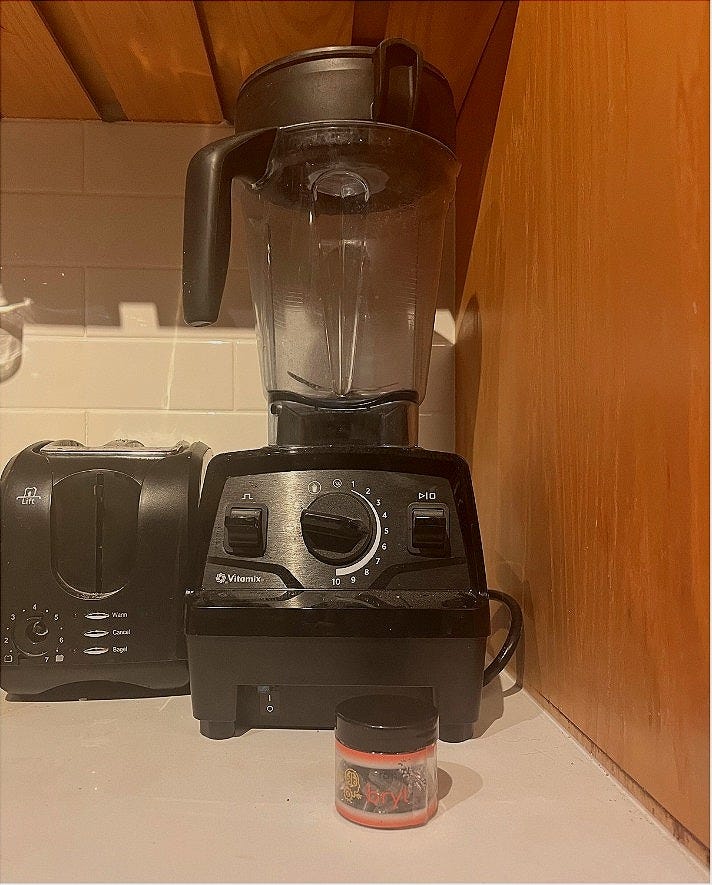Today’s post is brought to you by SAFALAB Inc., proud promoters of Rain Seed Nutrition Co.

Recently, I was surprised to see a contact of mine featured in the San Francisco Standard—not specifically for a business deal or his new startup, but for bringing a jar of beef tallow to a restaurant. He asked the server to cook his food with it instead of the house oils, and even handed over a laminated card explaining why.
That got me thinking: What memo did I miss?
I glanced over at my desk—where, incidentally, sits a jar of supplements proudly touting the benefits of seed-based nutrition. Chia, flax, sacha inchi, black cumin... these are the good seeds, right?
So then why the fuss about seed oils—extracted from plants—being treated like dietary kryptonite?
If I’m wondering this, I figure others are too. So let’s get into it.
What are seed oils, anyway?
Seed oils are vegetable oils extracted from. . .seeds. These include canola, soybean, sunflower, safflower, corn, and grapeseed oils. Thanks to their neutral flavor, they've been staples in home kitchens and processed foods for decades. You’ll find them in everything from salad dressings to granola bars to deep fryers.
Why are people freaking out about them now?
In the past couple of years, seed oils have gone from pantry basic to public enemy. Wellness influencers such as Cate (“Dr. Cate”) Shanahan have dubbed them the “Hateful Eight,” and prominent voices like Robert F. Kennedy Jr. have called them some of “the most unhealthy ingredients we have in foods.” Social media is full of videos of people bringing jars of beef tallow to restaurants and handing servers laminated cards explaining why they won’t touch canola oil. Dr. Cate and other critics say that these seed oils, due to refinement and extraction, are prone to oxidation.
Are seed oils actually bad for you?
It’s complicated. Critics argue that seed oils are chemically processed, high in omega-6 fatty acids, and potentially inflammatory, especially when heated to high temperatures (as in deep-frying). One recent study linked ultra-processed foods high in seed oils to increased colon cancer risk. But it didn’t establish a direct causal relationship. Health experts caution against panic: omega-6s aren’t inherently harmful; the issue is the imbalance—Americans eat way too much omega-6 and not enough omega-3.
On the flip side, many studies suggest seed oils may reduce risk of heart disease, cancer, and Type 2 diabetes when used in moderation and as part of a healthy diet. They’re unsaturated fats—nutritionally better than butter or lard.
Just last month, a comprehensive study published in JAMA Internal Medicine analyzed data from over 221,000 American adults and found that replacing butter with plant-based oils—including canola oils—was associated with a significant reduction in the risk of early death. Specifically, substituting just 10 grams of butter daily with these oils was linked to a 17 percent decrease in total mortality.
So... should I avoid them?
Not necessarily. The real problem isn't seed oil itself, it's the context. Seed oils show up most often in ultra-processed, low-nutrient foods that are also loaded with sugar, sodium, and additives. Think fast food, not homemade stir-fry.
As the Cleveland Clinic puts it: “Seed oils aren’t necessarily good for you. But the real reason they’re considered so bad for you is related to how they’re most often used: in processed foods and ultra-processed foods.” Cooking with seed oil in your own kitchen? Totally fine, especially if the rest of your diet is balanced. The bottom line: focus less on vilifying one ingredient, and more on what your overall food habits look like.
“We keep hopping from one fad to the next,” said Alice Lichtenstein, professor of nutrition science and policy at Tufts University, in an interview. it’s easy for consumers to latch onto just one thing to either demonize–or sensationalize as a quick-fix. “First it was high fructose corn syrup, then that fell through when people realized it was just one of many kinds of sugar. Then at one point, oat bran was going to solve all our problems. Then the coconut oil, and now we’re into beef tallow. And so I don’t know why these fads garner so much attention, but possibly the basic dietary guidance is considered relatively boring,” she says. The key ,with seed oil, as with most things, is moderation. “I can’t make it jazzier.”
Seed oils ≠ seeds. The whole-food versions—chia, flax, pumpkin, sunflower, sacha inchi, black cumin, etc.—are little powerhouses of nutrition. Here’s a breakdown of some of the most popular edible seeds and why they’re worth keeping around.
"Good" Seeds to Eat (Nutrient-Dense & Commonly Recommended)
Chia Seeds
Benefits: Loaded with fiber, omega-3s, and antioxidants.
Use them for: Thickening smoothies, puddings, and even replacing eggs in vegan baking.
Fun fact: They absorb up to ten times their weight in water, forming a gel-like texture.
Flaxseeds
Benefits: Rich in omega-3s, lignans (powerful antioxidants), and soluble fiber.
Use them for: Boosting oatmeal, yogurt, or smoothies. Ground is best for absorption.
Fun fact: They're one of the best plant sources of omega-3 fatty acids.
Hemp Seeds
Benefits: Complete plant protein with all 9 essential amino acids, plus omega-3 and 6.
Use them for: Stirring into yogurt, sprinkling on toast, or blending into smoothies.
Fun fact: Just 3 tablespoons deliver ~10g of protein.
Sunflower Seeds
Benefits: Loaded with vitamin E, selenium, and healthy fats.
Use them for: Snacking straight, adding crunch to other dishes, or baking into breads.
Fun fact: Their oil is also used in natural skincare for its moisturizing benefits.



